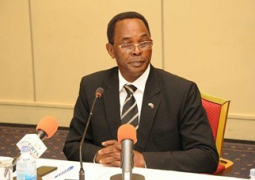
All said, “Going away” in those days, as it is now by the so-called “backway”, was one of the rites of passage to manhood or womanhood, and was in the minds of most young people, except those without any ambitions. So, the “backway” movement is not a recent phenomenon, but it has recently increased by several folds; it has become much more perilous, claiming the lives of young people at an alarming rate; for instance in 2022, it is estimated that over 2000 young African migrants perished in trying to cross the Mediterranean, not to mention those who die in trying to cross the Sahara desert, or die or are raped in the camps and jails of unwilling host countries.
Of course the urge toward such perils are stronger in some than in others, and during our young days, it was usual to hear someone being referred to as suffering from “nerves”, a phrase which meant at the time that the sufferer was at the edge of losing his mind totally, for wanting to go abroad. Nonetheless the sentiment had reason to be a top inclination of young ambitious people, because anyone who was anybody in The Gambia, at one point or the other, had been away either to study in a university, or had been away to seek fortune, which were now in their possession. Again, not everyone who left came back successful, or even came back. There were many “old timers” or settlers in places like London, France, the U.S., who never fulfilled their dreams, or who had no inclination to ever make the return leg.
In the country, for the pursuers of fortune, many of them are from the serahules tribe, who hail from the upper river districts of the country. Some of them returned to the country to be the richest Gambians, and they built hotels and factories.
On the other hand, for those who returned as university graduates, many were employed by the government as civil servant, or were employed by the quasi-public or private institutions. Their western education, their acquired values, and their ways of life, soon proved more self-serving, with little impact on the strive to improve the standard of living of the general population. Their education turned out to be those for mature political, economic, and social systems, which were already industrialized. The Gambia had its independence in 1965, and was mainly rural and underdeveloped with majority of its citizens illiterate and poor. The application of the pedagogic principles and practices of modern industrialized society soon proved anachronistic and ineffective. And since those who are the so-called “educated” insist to be at the helm of the country’s affair, but they had no clue of how to move the country forward; they went back, as a matter of policy, to the erstwhile colonizers for assistance and guidance, which the latter gladly provided, but only on their own terms; so usher into existence the neocolonial era, which prevails today. The horse had not change riders, and the horse has additional riders; the African masses everywhere continue to be still under the yoke of the most ineffective and exploitative systems, even comparable to the feudal and slave trading days of the 18 and 19 centuries.
The way forward must be to re-think hard, in a much more scientific and technical manner, how to revolutionize current development policies, which have been pursued for the past 50 years, after independence. Why? Because the policies are not performing, are not effective, and they are obviously not meeting the needs of the most numerous constituency, the young people, who are in the majority by over 60% of the current population of the continent.
Bai Lamin Jobe
Cape Point, The Gambia
27 December 2023



